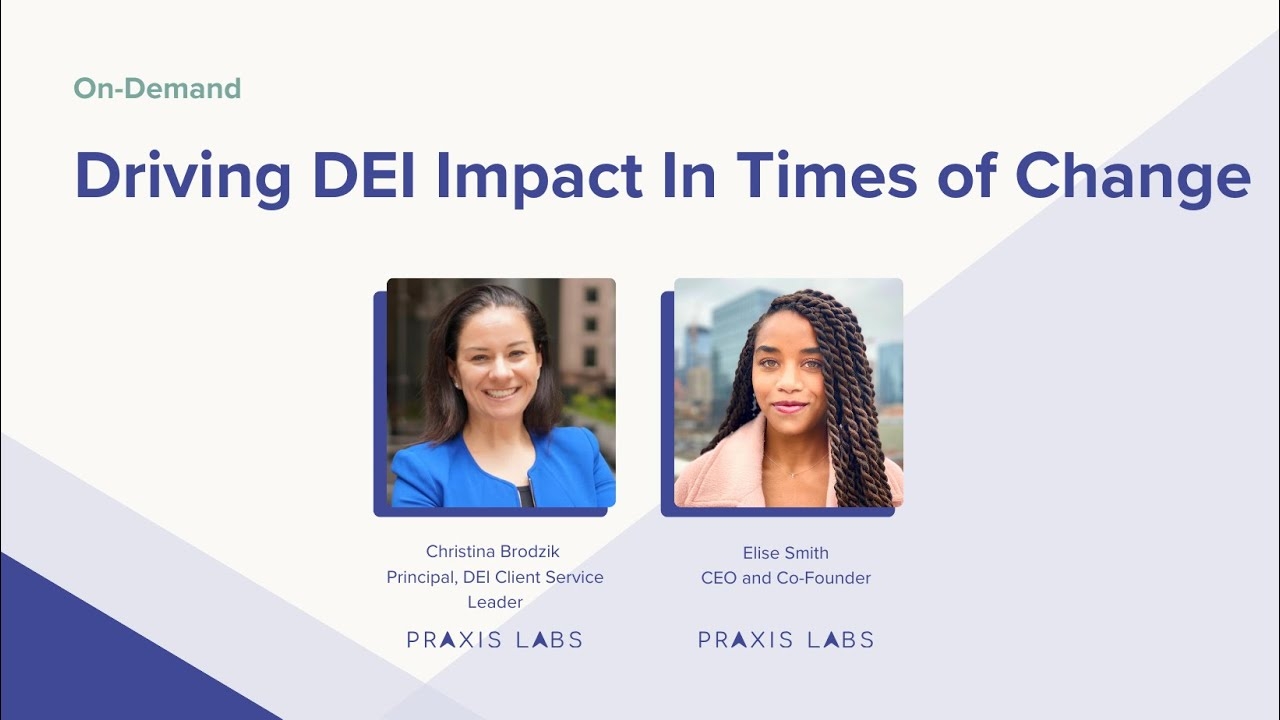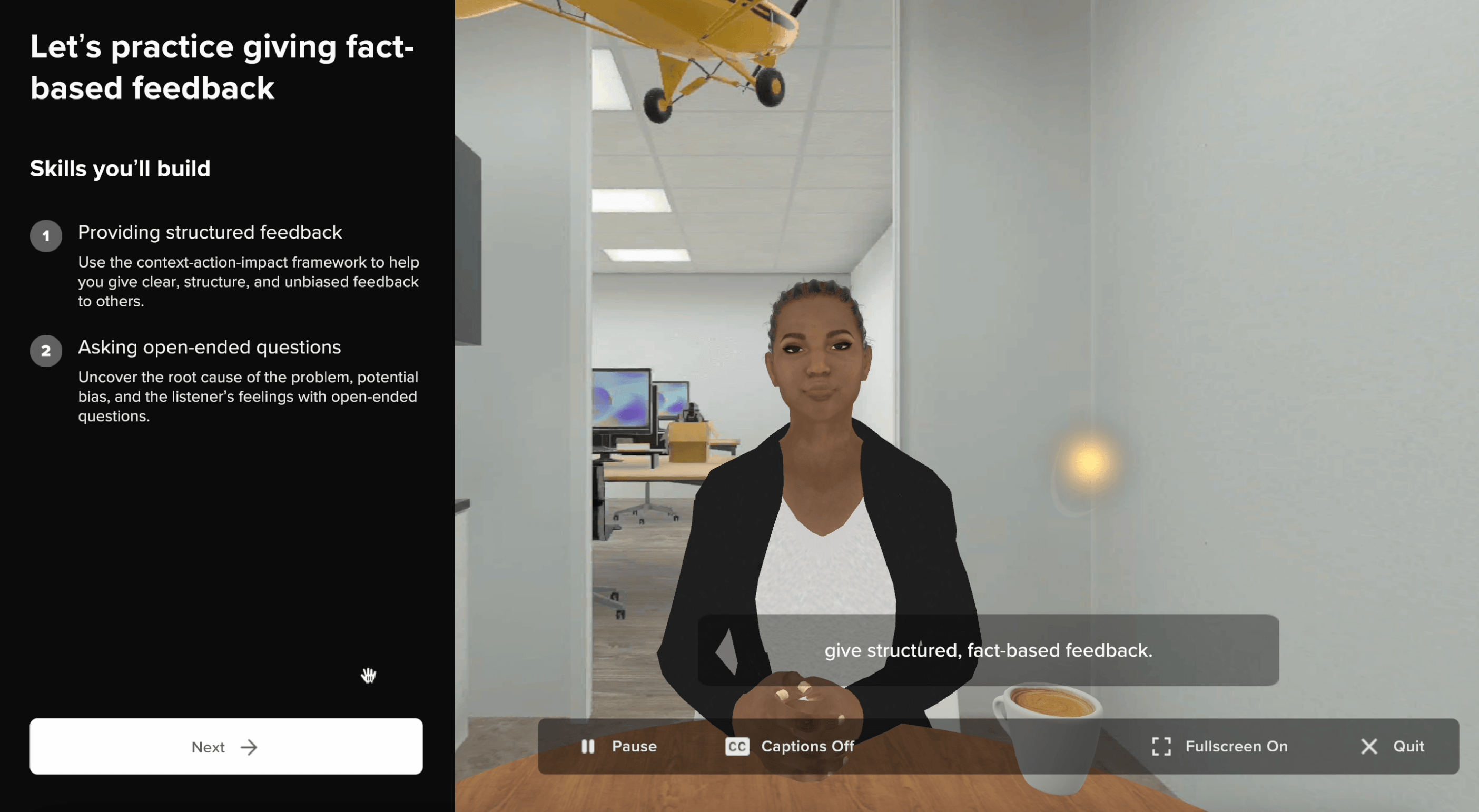- DEIJ
Why DEI is important for employee experience
Creating a meaningful employee experience is about supporting employees throughout the moments that matter most in their careers. Whether you’re overseeing the hiring process, onboarding, or promotion decisions, being empathetic and DEI-minded is key to securing their continued engagement.
Recent studies have shown how DEI training improves employee experience, leading to 2x engagement. According to a Changeboard report, they have been proven to work 12% harder, are 19% more likely to stay longer with the organization, and collaborate 57% more effectively with peers.
So how do you maximize this DEI upside? A DEI training strategy that elicits buy-in at all stages of an employee’s journey, not just the beginning.
Prioritizing DEI across the talent lifecycle
With the future of work changing, traditional one-and-done trainings are no longer effective. Insincere interactions with management drive employees to disengage. Employees are seeking companies that are actively and authentically committed to DEI topics.
Our research has found that DEI training improves employee experience when it is A) modern and sincere and B) integrated across the entire employee lifecycle, not just during onboarding.
Here are our recommendations for when and how to engage employees with DEI training:
Start with the interview process
A DEI-minded hiring experience makes new employees feel confident that the organization they’re entering shares their values. And this couldn’t be more important — according to a recent CNBC survey, 56% percent of people today won’t even consider working for a company that doesn’t share their values.
If a hiring manager mishandles an interview, a values-minded employee will not only refuse the offer — they will warn other applicants by posting on social media or popular review sites like Glassdoor.
If your applicant pool is diverse but your team is not, or you suspect bias in any part of your hiring process, consider removing names from resumes and standardizing your interview process. To keep hiring managers on the call, we recommend incorporating data-enabled technologies that consistently monitor and analyze progress. Training hiring managers on how to prioritize equity is critical to building an inclusive talent pipeline.
Create a welcoming onboarding experience
75% of organizations today incorporate some kind of DEI training into their onboarding process. But in 2023, just checking the box doesn’t earn employee buy-in. You can measure the ROI of your DEI training by regularly collecting data on your employees’ attitudes and human skills.
For example, suppose your program emphasizes perspective-taking by showcasing how individuals from diverse backgrounds perceive workplace scenarios. We recommend conducting a survey six months later to gauge the extent to which participants have retained the knowledge.
Some data-powered platforms even do this for you, functioning as “skills centers” where employees can access DEI training on-demand and receive continuous feedback over their talent cycle.
Build skills for career growth and advancement
In a constantly evolving workplace, the most effective DEI training teach employees about the significance of human skills, like inclusive leadership and empathy. These programs emphasize that cultivating these skills is crucial for unlocking individuals’ career ambitions.
And it’s true — as AI reshapes job descriptions, the “hard skills” required to perform certain roles will change, but human skills such as communication and collaboration will remain key. Additionally, they are transferable across industries, giving employees agility as market conditions fluctuate. Establishing an arena where employees can practice and hone these skills on-demand has a proven impact on building more engaged and resilient teams.
Create an experience that makes employees want to stay
Employee churn costs companies an average of $1 trillion per year. Forward-looking DEI training programs can keep talent engaged by working human skills into their performance incentive structure.
This shows employees that their contributions to an inclusive culture will help them reach the top. The improvement in human skills will mean more constructive performance reviews and more empathetic managers. Half of employees who quit do so because of bad managers, according to a recent survey.
Next steps? Future-forward DEI
The best DEI programs are mindful that the difference between a jaded employee and an engaged one is in the details.
Making a DEI program on-demand and tech-enabled gives workers the time to practice their human skills and see the real-time impact of the things that matter. By harnessing the perspective-taking power of immersive technologies, you can equip your team with the necessary resources to develop into empathetic and detail-oriented leaders. By embedding these trainings across the talent lifecycle, people leaders are sure to see how DEI training improves employee experience.
For more information on how to embed DEI training across the talent lifecycle, check out our recent guidebook:









